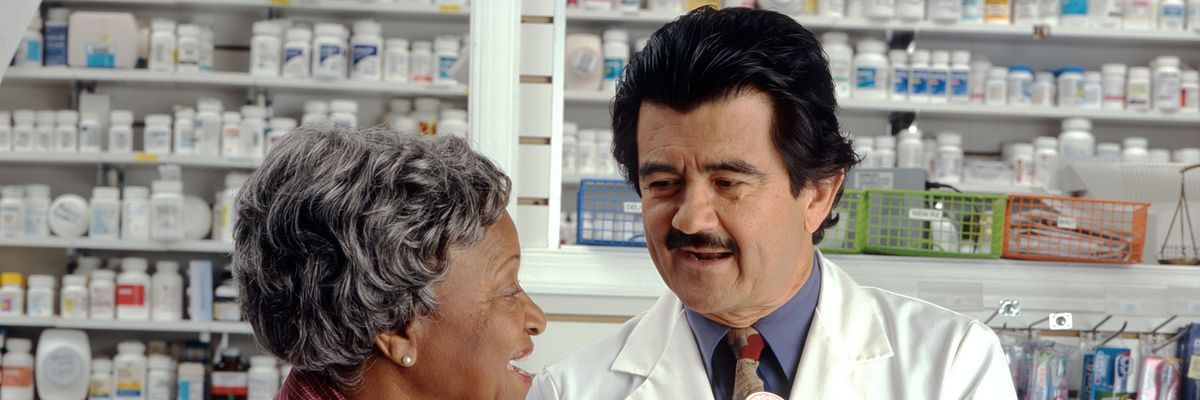Drugcompanies keep making excuses for why they do not have to live up to their 340B statutory obligations. Since 2020, 21 drug companies have restricted the number of contract pharmacies where 340B nonprofits can fill patient prescriptions. Their attack undermines the intent of the 340B statute.
Drug companies insist they have legitimate oversight concerns, yet their supposed good governance concerns belie the pharmaceutical industry’s true intent. Simply stated, drug makers want to extract every dollar they can from their products, even if it means breaking an agreement with the federal government to sell a tiny percentage of their drugs at a discount to the nonprofits that reinforce America’s healthcare safety net.
Healthcare nonprofits rely on 340B drug discount savings to care for the most vulnerable Americans. For patients to access life-saving medicines, they must be able to pick up their prescriptions from community pharmacies. Many low-income, uninsured Americans lack the time and resources to travel far from their work and homes—often passing by multiple pharmacies—to a single drug company-approved prescription drug dispensing site. The 2010 Affordable Care Act (ACA) recognized that problem, empowering the Health Resources and Services Administration (HRSA) to promote medication access through contract pharmacy use. Federal guidelines wisely allow nonprofits to engage in multiple contract pharmacy agreements.
Simply stated, drug makers want to extract every dollar they can from their products, even if it means breaking an agreement with the federal government to sell a tiny percentage of their drugs at a discount to the nonprofits that reinforce America’s healthcare safety net.
So why did drug companies wait until 2020—10 years after the HRSA guidelines went into effect—to begin enacting contract pharmacy restrictions? The answer is simple. Just one year earlier, in 2019, a little-known ACA provision which requires drug makers to submit drug pricing information to a database finally came online. The “ceiling price” database provides nonprofits with the requisite data to ensure drug companies do not charge above the 340B ceiling price. Companies that overcharge are subject to a civil monetary penalty. The 340B statute requires those companies to then sell the offending drug at just one penny in the next calendar quarter.
Data transparency shows that drug companies have broken the law, frequently overcharging healthcare nonprofits for prescription drugs. The pre- and post-ceiling price data reveal a stark contrast in how often HRSA uncovered drug company malfeasance. From 2015 to 2018, only 6% of HRSA audits uncovered instances of drug company overcharging. After January 1, 2019—when mandatory drug company database reporting began—audits found overcharging in 67% of cases. In 2021 alone, 80% of audits revealed drug company overcharges.
Take Eli Lilly as just one example. In December 2022, the drug maker announced refunds for 340B overcharges for the fifth time that year. It is no coincidence that restrictions began apace with the advent of the ceiling price database.
Essentially, drug companies had no issue with nonprofits using multiple contract pharmacies when they could get away with rampant overcharging. And why would they? Without the government watching, multiple dispensing sites afforded drug companies more opportunities to overcharge nonprofits. Drug companies got away with nearly a decade of overcharges, with no recourse for nonprofits. Now, the same companies that ran wild when the government was not watching, decry the lack of federal oversight when it comes to nonprofit contract pharmacy use.
For the record, 340B nonprofits are subject to audit by the federal government and drug makers. Failure to comply removes a nonprofit provider from the 340B program.
Contract pharmacy restrictions couched as best practices represent a cynical ploy by drug companies. Drug companies caterwaul that oversight lapses result in double-charges for 340B discounts, once by nonprofits and once by state Medicaid agencies.
Simply saying something does not make it true. HRSA conducted 638 hospital audits since 2018 to ensure Medicaid fee-for-service compliance rules, and not one 340B contract pharmacy duplicate discount occurred. Drug companies want to be able to raise list prices year-over-year without 340B statutory penalties, and, now that a federal agency is watching, program obligations threaten the bottom line. Drug makers now consider 340B discounts as financial exposure to be avoided at all costs.
Ignore drug industry duplicity when it comes to 340B. Drug companies have repeatedly acted in bad faith, finding any loophole possible to abrogate statutory obligations.
If drug companies no longer wish to participate in 340B, they can leave the program and no longer sell their products to Medicaid and Medicare. Perhaps that is a deal they can finally honor.
